Blue Jean star Rosy McEwen on Section 28, queer stories and the strength of ‘beautiful lesbians’
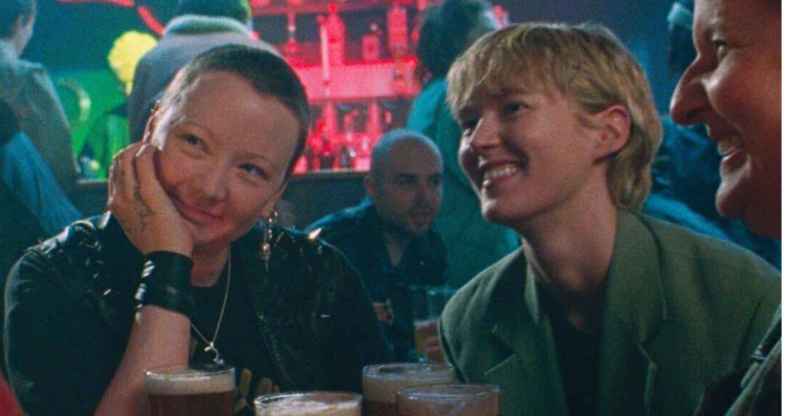
Kerrie Hayes as Viv and Rosy McEwen as Jean in Blue Jean. (BBC Films)
In a PinkNews exclusive, writer-director Georgia Oakley and rising star Rosy McEwen talk Section 28, lesbian representation and capturing 80s Newcastle in their new piercing new drama Blue Jean.
By all accounts, Georgia Oakley’s debut feature Blue Jean has been a triumph. Having scooped the People’s Choice Award at Venice Days and four gongs at the BIFAs, the film is now in the running for best debut award at this week’s BAFTAs; an impressive haul for a British independent film, and one that’s even more significant given its subject matter.
Set in the late 1980s, Blue Jean follows lesbian PE teacher Jean (Rosy McEwen) in the weeks and months after Margaret Thatcher’s Conservative government has introduced Section 28, a law banning the “promotion of homosexuality” by local authorities across the United Kingdom. By day, Jean takes great care to conceal her sexuality from her coworkers; by night, she spends time with her out and proud girlfriend Viv (Kerrie Hayes).
Jean’s life is thrown into turmoil, however, when she spots new student Lois (Lucy Halliday) at the local lesbian bar. Caught in the grip of an increasingly hostile environment, and faced with a moral conundrum, Jean must decide whether or not she will embrace her true self and in turn, help a young woman find her place in the world.
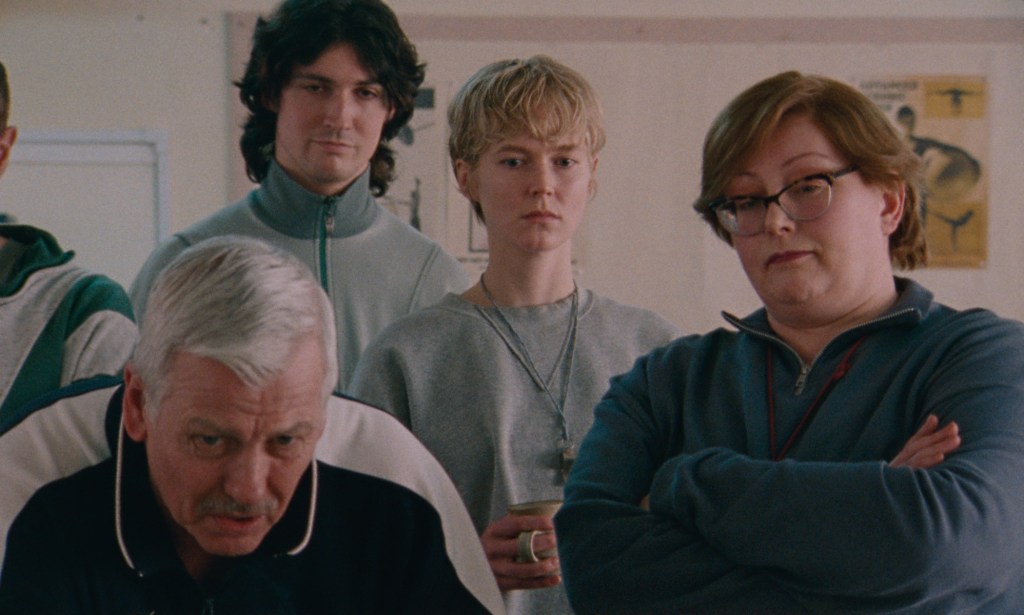
Although Section 28 is no longer around to force teachers and students into leading a double life, Thatcher’s notoriously homophobic legislation, which was eventually repealed in 2003, shaped an entire generation of teachers and students. Three decades on, its impact on national discourse can still be felt.
“It all started with something that surprised and shocked me,” says Oakley, who stumbled across an article about the infamous Section 28 protest in 1988 where lesbians abseiled into the House of Lords, before digging deeper into the history of Thatcher’s controversial law.
“I didn’t know anything about Section 28 and I soon realised I had been at school for the majority of that time,” she explains. “I started thinking about what a crazy effect it must have had on both the teachers and students lives without even realising. Obviously I was one of them”.
It was finding stories and struggles of life under Section 28, though, that motivated Oakley to tell the unvarnished story of Thatcher’s state-sponsored homophobia.
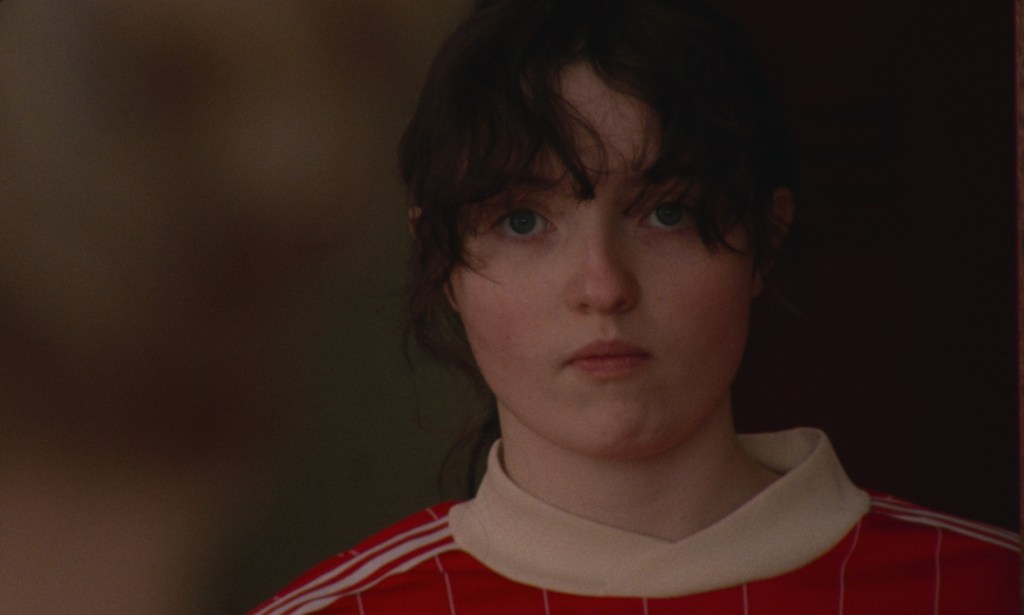
“It was a very extensive research process,” she explains. “We must have spoken to 40 or 50 men and women who were involved in all possible capacities.
“[We spoke] with women who worked as PE teachers and were gay at that time and had this exact experience. In some cases they shared their diaries with us. We spoke with activists and to as many people as possible to add texture to the world.
“Even though it is a tight-knit portrait drama about one woman that interrogates her life and choices, we wanted the world around her to be as fully realised as possible.”
Since the film was set in Newcastle, the production team also gathered oral histories from local lesbians to ensure regional specificity; something that gripped McEwen when she first read the script.
“I knew] I really wanted to do this and thought ‘even if I’m not in it, I cannot wait to watch it'” she recalls. “It’s very rare you do a project you would watch personally yourself.
“Georgia’s writing is so fully formed. To have someone who’s thought about every detail and then is able to communicate that is so exciting as an actor – there’s so much room to play with.”
Getting the film off the ground wasn’t an entirely smooth process, though. Given it was Oakley’s first project on this scale, learning to “navigate” the industry brought its own unique challenges.
“It’s very difficult when it’s your first feature to try and stay true to what you believe is right, and also take on board people’s feedback,” she explains, describing how she felt a bit “put out” after receiving feedback that it was “strange” to read a script set in 80s Newcastle that didn’t overtly discuss Thatcherism and the miners’ strike.
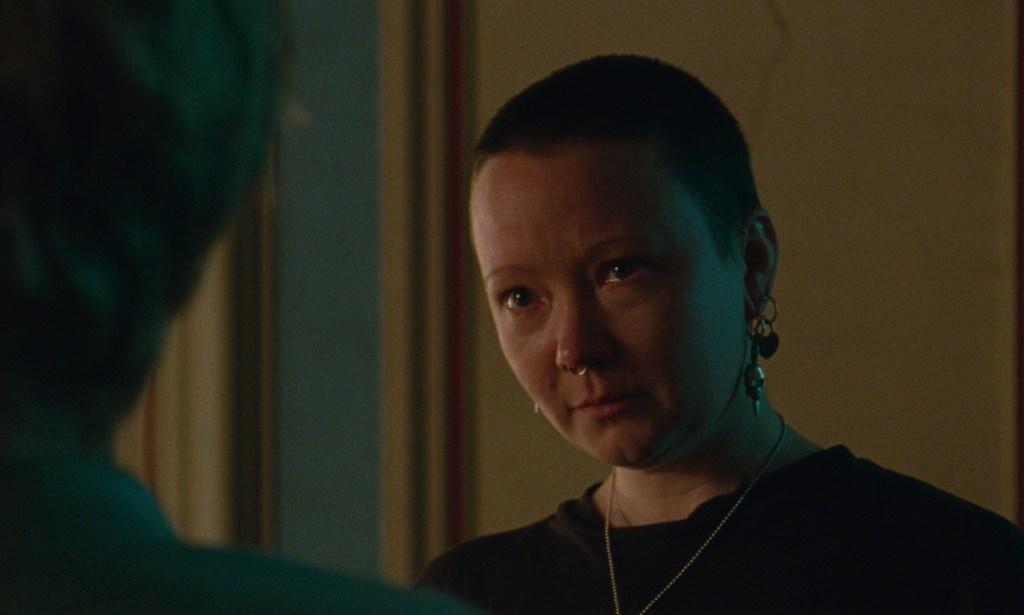
While Oakley realised that “one film can’t do everything”, she did take the criticism on board by including a “joke” scene where Viv’s co-operative of assertive lesbians sing and dance to the anti-Thatcher tune “Maggie Maggie Maggie (Out Out Out)”; a scene that has since been heralded as one of standout moments of Blue Jean.
“[It’s] a whole group of f**king amazing hairy-armpitted beautiful lesbians dancing to ‘Maggie Maggie Maggie'” McEwen beams. “I just love that scene. The energy everyone got from doing that was so united, messy and glorious”.
“I never thought the scene would come together the way it did,” Oakley agrees. “We almost broke through the floor of the very old building that we were filming in”.
McEwen also praises the film’s representation of lesbians who are not “oversexualised” or heavily focused on their appearance.
“I hope Jean and Viv reflect real lesbians with a real life that is not overly glamorised,” she notes. “They are just a normal couple who get into arguments”.
The pair are also hopeful that the film will serve as a pertinent reminder that the psychological impact of Section 28 still looms large to this day in the form of countless protests, petitions and attacks mounted against LGBTQ+ inclusive education.
“The work has already been done to make a whole society of people believe a certain thing, in this case heteronormative messaging,” Oakley explains.
“Ultimately I feel like too much emphasis is put on laws and whether they are repealed. Obviously that’s a starting point but there is so much more that needs to be done to change the way people think.”
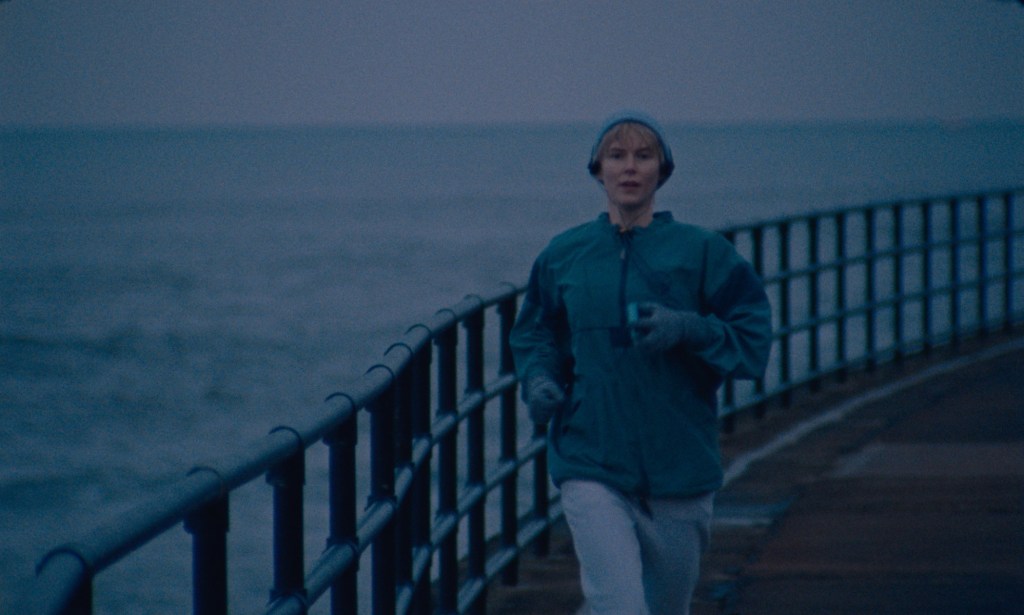
While the microaggressions depicted in Blue Jean will doubtless strike a chord with queer viewers, Oakley also believes that anyone who has been “othered in any way” will relate to the film.
“I hope the film makes people realise as individuals we have so much responsibility to change the way that people see the world in our immediate circle,” she explains. “If we can do that then it can build to something bigger”.
McEwen also hopes that exploring the severe ramifications of Section 28 through the character of Jean will “hopefully emotionally shift [people’s] perspectives and broaden their understanding,” adding that storytelling is “one of the most powerful tools for change”.
Both Oakley and McEwen hope that the film will generate conversations about representation and encourage the industry to support more queer stories.
“I have a six year old stepdaughter,” Oakley says, “and children are still completely blind to the fact that different types of families exist. She gets strange questions from her friends. There’s a lot to be explored in the experience of queer parenting on screen.”
With viewers from all generations expressing how Blue Jean has given them the “courage” to come out or confront their past on social media, Oakley is hopeful that the film provides catharsis for those who find aspects of their lives reflected on screen.
“A lot of my own experiences are funnelled into that story and I find it quite cathartic going on this journey with Jean.”
Blue Jean is in UK cinemas now.

